READY TO GET STARTED?
REQUEST A FREE ESTIMATE
Fill out the form below or call (888) 466-7849 for a free, no-obligation estimate.
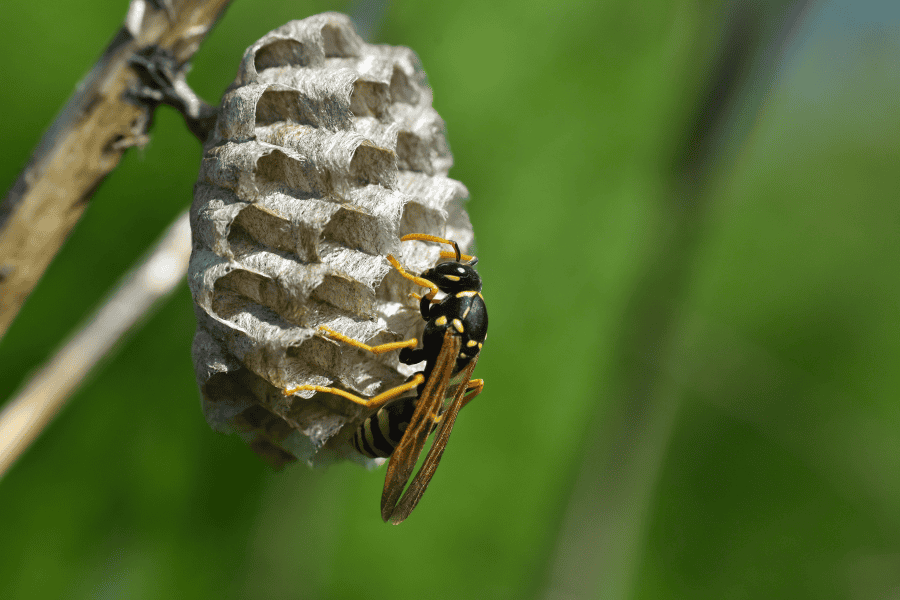
Paper wasps are a common sight in Georgia, particularly during the warmer months. While they play a beneficial role in the ecosystem by controlling pest populations, their aggressive behavior at certain times of the year can make them a significant threat to humans and pets. Understanding when paper wasps are most aggressive and how to keep them away from your property is crucial for maintaining safety and peace of mind.
Paper wasps are part of the “social wasps” category, meaning they live in colonies and work together to build nests, care for their young, and protect their community. These wasps are often confused with yellow jackets due to their similar size and appearance, but there are key differences in behavior and nesting habits to consider in the “paper wasp vs yellow jacket” comparison.
Unlike yellow jackets, which build underground nests, paper wasps construct open, umbrella-shaped nests from chewed wood and saliva, which hardens into a papery material. These nests are commonly found hanging from eaves, porch ceilings, tree branches, or other sheltered locations around your home.
Paper wasps tend to be most aggressive when they feel their nest is disturbed. This heightened defensiveness typically occurs during late summer and early fall when their colonies are at their largest, and they are working hard to prepare for winter. During this time, the queen, workers, and developing larvae depend on one another for survival, making the wasps especially protective of their home.
While these wasps are generally less aggressive than yellow jackets, their stings can still pose serious risks. A paper wasp sting is not only painful but can also trigger severe allergic reactions in some individuals. Unlike bees, which die after stinging, these wasps can sting repeatedly, making encounters with them particularly dangerous.
The life cycle of paper wasps directly influences their activity levels and behavior. Here’s what you can expect throughout the year:
In the spring, overwintered queens emerge from hibernation to establish new colonies. This is when paper wasps are least aggressive, as they are focused on building their nest and laying eggs.
By summer, colonies are growing, and the wasps are busy foraging for food to feed the developing larvae. While they are not inherently aggressive during this period, any perceived threat to their nest can provoke defensive behavior.
As the season transitions into fall, colonies reach their peak size. This is when the wasps become highly aggressive and protective of their nests. With winter approaching, their food sources begin to dwindle, which can also make them more likely to scavenge around your property, increasing the chances of encounters.
Most of these wasps die off as winter arrives, leaving only the fertilized queens to hibernate until spring. During this time, you are unlikely to see any activity.
Although paper wasps play an essential role in controlling other pest populations, their stings pose several dangers:
Preventing paper wasps from nesting around your home requires a proactive approach. Here are some steps you can take:
Regularly inspect your home for cracks, gaps, and openings where paper wasps might enter. Seal these areas to prevent them from nesting inside wall voids, attics, or sheds.
Even though paper wasps do not reuse old nests, leaving them in place can attract other pests. Safely remove and dispose of abandoned nests during the winter months when wasps are inactive.
Paper wasps are attracted to sweet foods and protein sources. Keep trash cans tightly sealed, clean up outdoor food and drink spills promptly, and cover compost bins to discourage foraging.
Cut back overgrown shrubs, tree branches, and vines around your property. These areas provide shelter for wasps to build nests.
Paper wasps are territorial and avoid building nests near existing ones. Hanging decoy nests in problem areas can discourage them from settling in.
If you notice a paper wasp nest in or around your home, contacting a professional pest control company is the safest and most effective way to handle the situation. Professionals have the tools and expertise to remove nests without putting you at risk of stings. Consider a company that specializes in green pest control, providing pest control methods that are safe for both the environment and your family.
If you come across a paper wasp nest:
Preventing paper wasps from becoming a problem is far easier than dealing with an aggressive nest. By taking steps to limit nesting opportunities and contacting a pest control company at the first sign of a problem, you can keep your property safe year-round.
At Northwest Exterminating, we specialize in safe and effective paper wasp control. Our experts will inspect your property, identify problem areas, and develop a customized treatment plan to eliminate nests and prevent future infestations. Whether you need immediate nest removal or seasonal pest prevention, we’ve got you covered.
By understanding the life cycle and behavior of paper wasps, you can minimize the risk of encountering these stinging pests and maintain a safe and comfortable property. With professional pest control services, you can enjoy year-round peace of mind, free from the worry of aggressive wasps.
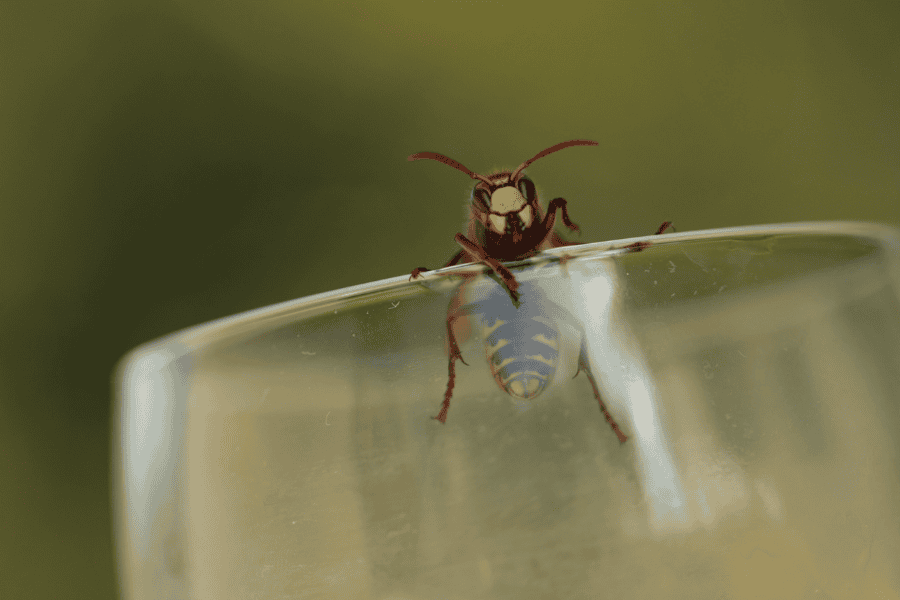
As a restaurant owner or property manager, maintaining a pest-free environment is crucial for the success of your business. Among the most troublesome pests are those that sting, such as wasps, hornets, and bees. These pests pose health risks to your customers and staff, and their presence can tarnish your establishment’s reputation. Understanding the types of stinging pests commonly found around restaurants and knowing how to manage them can help you maintain a safe and welcoming environment.
Conduct routine inspections around your restaurant, focusing on outdoor dining areas, trash bins, and entry points. Look for nests or high activity zones and address them promptly.
Ensure that trash bins are sealed tightly and emptied regularly. Wasps and hornets are attracted to food waste, so maintaining clean waste disposal areas can significantly reduce their presence.
Check for and seal any gaps or cracks in windows, doors, and walls where pests might enter. Installing screens on windows and doors can also help keep these pests out.
Partnering with a professional pest control company ensures a thorough and effective approach to managing stinging pests. These experts can identify potential problems before they escalate and provide tailored solutions to keep your restaurant pest-free.
Encourage customers to cover their drinks and food when dining outside. Provide lids for cups and use containers with tight seals for condiments to minimize attraction to stinging pests.
Keep your landscaping tidy and free of debris. Trim bushes and trees regularly and remove any fallen fruits or flowers that can attract bees and wasps. Consider planting pest-repelling plants like mint or citronella around dining areas.
Maintaining a pest-free restaurant is essential for customer satisfaction and safety. Regular inspections, proper waste management, sealing entry points, and partnering with a professional pest control company are key strategies in keeping these types of stinging pests pests at bay. Give our team a call for a free, no-obligation quote today!
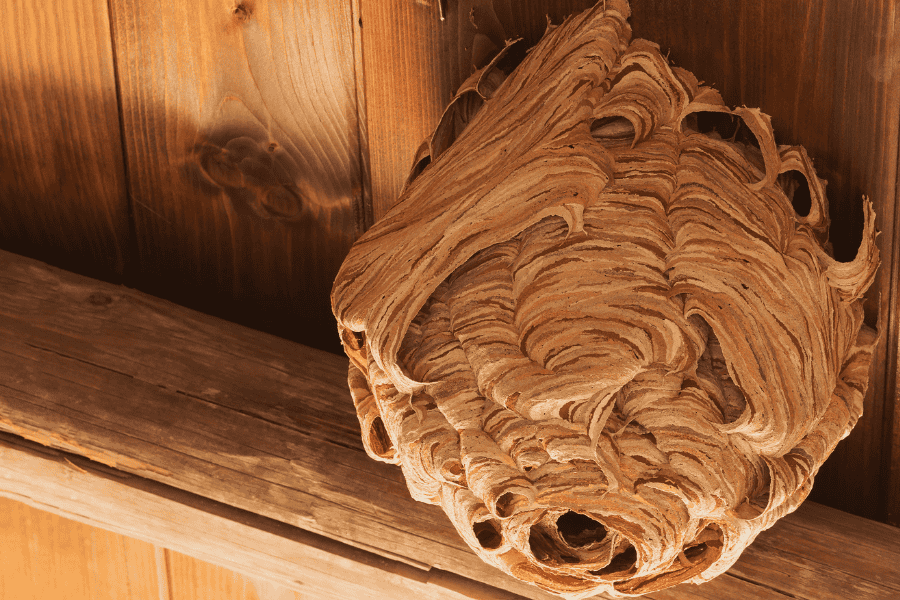
Stinging pests, like wasps and hornets, can turn a relaxing afternoon in your yard into a stressful experience! These pests can not only be a nuisance but be a danger to both humans and pets. Let’s dive into how you can prevent wasps and hornets from taking over your yard!
It’s important to understand the difference between wasps and hornets so you can effectively prevent them.
Both wasp and hornet stings can be very painful and cause similar symptoms, including swelling and pain around the sting site, burning sensation, itchiness, and more.
Let’s review the preventative measures to place around your Florida property to avoid stinging pests:
If you’ve noticed an influx of stinging pests around your Florida home, it’s best to call a pest control company near you. Removing nests can be extremely dangerous, so it’s always best to leave it to a professional pest control expert who can safely remove the nest and provide you with recommendations on preventing wasps and hornets in the future.
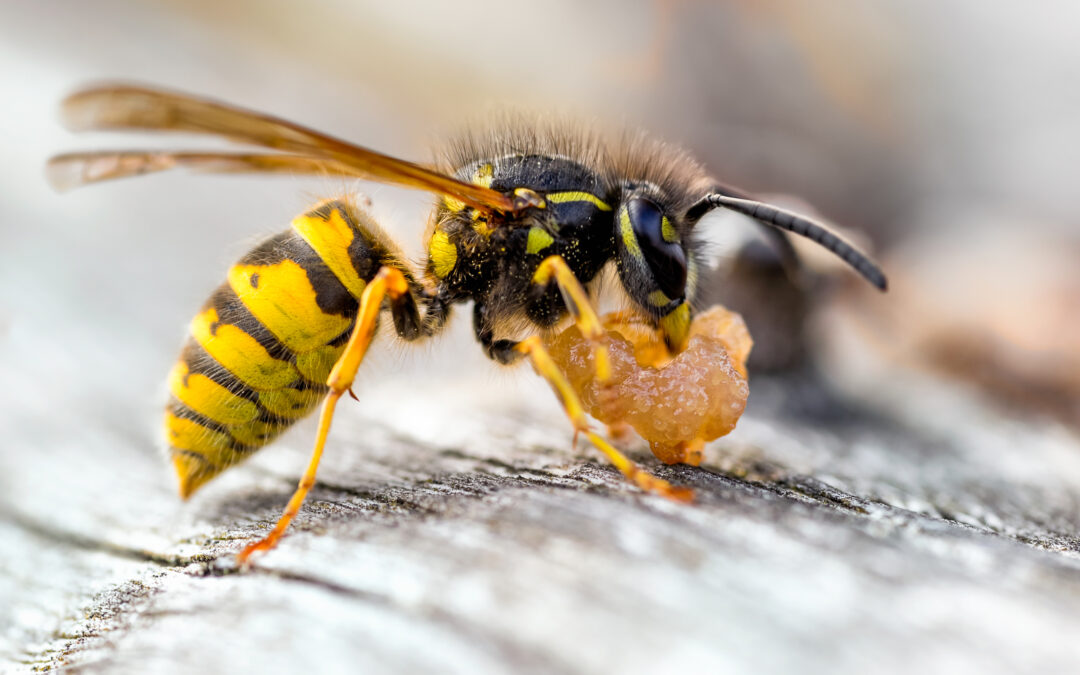
Living in Florida can come with great perks – gorgeous beaches, vast landscapes, and a warm, tropical climate to enjoy practically year-round, though this climate also invites some unwelcome guests: stinging pests. From wasps to fire ants, these pests can turn your outdoor fun into worry. In this blog, we breakdown your guide to common stinging pests and how to keep them at bay!
Keep your lawn trimmed and free of debris. Stinging insects will often nest in overgrown areas throughout your property. Additionally, trim back trees and bushes, and remove piles of leaves or wood. Place any stored lumber 20 feet from your home and raise it off the ground.
Wasps and other pests are attracted to food waste, so it’s crucial to dispose of it properly. Make sure your trash bins are sealed tightly and clean them regularly to prevent odors that attract pests. Wasps love the sugary liquids that are left behind in soda cans, so make sure your recycling bins are secure and clean too.
Inspect your home for any openings where pests could enter. Repair screens and doors, and seal gaps around pipes and cables with steel wool or caulk, depending on the size.
Controlling stinging pests on your own can be very risky and it’s always best to deal with these pests by calling a Naples pest control company near you. These pest control professionals are trained to know how to handle and remove these pests safely.
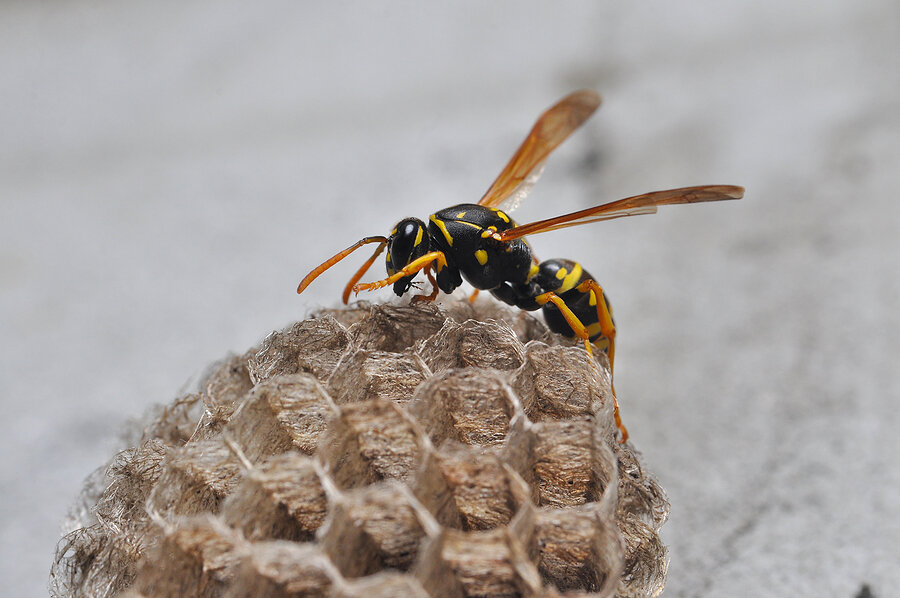
Florida is no stranger to dealing with stinging pests! These insects can become a real nuisance to your Bonita Springs property once they have invaded your yard and can pose a health risk to your family. Let’s review some common stinging pests in Florida and how you can avoid them on your property.
Stinging pests are most active during summer and early fall, so it’s crucial to start placing preventative measures throughout your property to avoid their infestation! Check our tips and tricks on avoiding stinging insects:
If you happen to be stung by a stinging insect, it’s best to seek medical attention immediately. Likewise, if you’ve seen an influx of stinging pests on your property, it’s best to contact a pest control company near you. Removing nests can be extremely dangerous, so it’s best to leave it to the professionals who will safely remove the nest and provide you with recommendations on preventing these common stinging pests in the future.